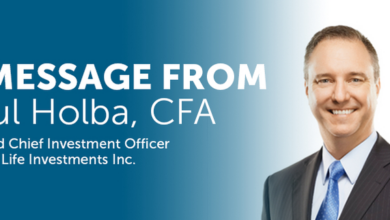Business use endorsement personal auto policy: Top 1

The Blurry Line Between Your Driveway and Your Business
A business use endorsement personal auto policy is an add-on to your regular car insurance that extends coverage when you use your personal vehicle for work-related activities beyond commuting. Here’s what you need to know:
Quick Answer: Business Use Endorsement vs. Commercial Policy
- Endorsement: Covers occasional business use like client visits, real estate showings, or transporting work materials
- Commercial Policy: Required for regular deliveries, employee drivers, company-owned vehicles, or high-risk activities
- Cost: Endorsements typically add $50-200 annually; commercial policies cost significantly more
- Florida Requirement: Any business use beyond commuting may void your personal policy without proper coverage
The Florida economy thrives on small businesses and the gig economy. Real estate agents drive to showings in Tampa. Photographers haul equipment to Miami Beach weddings. Contractors transport tools between Orlando job sites. Almost half a million Canadians work as ride-share drivers, and Florida’s numbers are similarly impressive.
But here’s the problem: your personal auto insurance probably doesn’t cover these activities. Most personal policies exclude business use, leaving you financially exposed if an accident happens while you’re working.
The line between personal and business use isn’t always clear. Driving to your office? That’s personal use. Stopping at three client locations on the way home? That crosses into business territory. Making deliveries or transporting paying passengers? You definitely need more coverage.
As Paul Schneider from Schneider and Associates Insurance Agencies with over two decades of Florida insurance experience, I’ve seen countless claims denied because drivers didn’t understand when they needed a business use endorsement personal auto policy. Understanding your options can save you from financial disaster and keep your business running smoothly.


Drawing the Line: Personal vs. Business Use of Your Vehicle
Alt Text: Split image showing personal versus business vehicle use scenarios for insurance purposes. Metadata: Title: Personal vs Business Vehicle Use Insurance; Description: Visual comparison illustrating the difference between personal and business use of vehicles for auto insurance coverage decisions; Geo-tag: Tampa, FL.
Picture this: You’re driving to Publix for groceries, then swinging by a client’s office to drop off some paperwork. Same car, same day, but in the eyes of your insurance company, you’ve just crossed from personal territory into business use. Understanding this distinction isn’t just insurance jargon—it’s the difference between having coverage and facing financial disaster.
What Insurance Companies Consider “Personal Use”
Your personal auto policy is more generous than you might think. It covers your commuting to a single workplace, even if you’re driving from Jacksonville to Orlando every day. That daily grind to your regular job? You’re covered.
Running personal errands is also safe territory. Whether you’re grabbing groceries in Tampa, picking up dry cleaning in Miami, or taking your kids to soccer practice in Fort Lauderdale, your personal policy has your back. Driving children to school and their activities falls squarely in the personal use category.
Don’t forget about social and recreational trips. Those weekend beach runs to Clearwater, dinner dates in downtown St. Petersburg, or family gatherings in Gainesville are all covered under your personal policy. The key is simple: if the trip benefits you personally rather than your business, you’re good to go.
Even occasional work-related errands like grabbing office supplies during lunch typically stay within personal use boundaries. For comprehensive details about what’s covered, check out our Personal Auto Insurance options.
Defining “Business Use” and Why Your Standard Policy Falls Short
Here’s where things get tricky. The moment you start using your vehicle to make money or conduct business activities, everything changes. Insurance companies see business drivers as riskier, and they’re not wrong.
Increased risk comes from several factors. Business drivers rack up higher mileage, spend more time on Florida’s busy roads, and often steer unfamiliar routes to reach clients. They’re more likely to be distracted by business calls or searching for addresses while driving.
When you’re transporting goods or materials for work, visiting multiple job sites, or carrying paying passengers, you’ve crossed into business use territory. A Miami photographer hauling equipment to a wedding, a Tampa contractor moving tools between job sites, or a Jacksonville real estate agent driving clients to showings all need more than personal coverage.
The problem? Most personal auto policies have liability exposure exclusions that specifically rule out business activities. The fine print typically states coverage doesn’t apply when your vehicle is used for “business purposes” or “carrying persons or property for a fee.”
This creates dangerous policy exclusions that leave you exposed. If you’re in an accident while conducting business without a business use endorsement personal auto policy, your insurer can deny your claim entirely. You’d be personally responsible for damages that could easily reach six figures in Florida’s litigious environment.
For businesses that regularly use vehicles, explore comprehensive Business Vehicle Insurance solutions that provide the protection you need.
What is a Business Use Endorsement Personal Auto Policy and When Do You Need It?


Defining the business use endorsement personal auto policy
Think of a business use endorsement personal auto policy as a smart middle ground between your basic personal coverage and a full-blown commercial policy. It’s like adding a room to your house instead of buying a whole new property.
This endorsement is essentially a policy rider that attaches to your existing personal auto insurance. Rather than replacing your current coverage, it acts as an add-on that extends your protection to include specific business activities that would normally be excluded.
The beauty of this arrangement is that you keep all your existing personal coverage while gaining the business protection you need. Your modest premium increase typically ranges from $50 to $200 annually – a fraction of what a commercial policy would cost. You’re still dealing with the same insurance company, and you still have one policy to manage.
Most importantly, this endorsement covers your liability, collision, and comprehensive coverage when you’re using your vehicle for work. It’s not a separate policy but rather an amendment that fills the gap between personal and commercial use.
Common Scenarios in Florida Requiring an Endorsement
Florida’s vibrant economy creates countless situations where hardworking professionals need more than basic personal auto coverage. If you’re a real estate agent driving to showings in Tampa’s busy market or showing waterfront properties in Jacksonville, you’re definitely using your car for business purposes.
Salespeople visiting clients across Florida’s diverse markets face similar challenges. Whether you’re meeting with prospects in Miami’s financial district or presenting to clients in Orlando’s tourism industry, your personal policy likely won’t cover these work-related trips.
Consultants traveling to appointments represent another common scenario. From IT specialists visiting offices in Fort Lauderdale to business consultants meeting clients in Tallahassee, professional services often require extensive travel that goes beyond normal commuting.
Food service professionals also find themselves in this situation. Caterers transporting food to events – whether it’s a wedding reception in St. Petersburg or a corporate lunch in Gainesville – are clearly using their vehicles for business purposes that require additional coverage.
Creative professionals aren’t exempt either. Photographers driving to shoot locations throughout Florida’s scenic landscapes, from beach sessions in the Keys to family portraits in suburban neighborhoods, need protection for both their equipment and their liability exposure.
When an Endorsement Isn’t Enough: The Tipping Point
While a business use endorsement personal auto policy covers many situations, there’s a clear line where you need to step up to commercial coverage. The key question is whether your vehicle is primarily a business tool or personal transportation that occasionally serves business needs.
Regular deliveries cross this line immediately. If you’re making daily delivery runs for a restaurant or pharmacy, or operating any kind of courier service, you’re well into commercial territory. The same applies if you’re transporting heavy equipment as your primary business function – contractors who mainly use their trucks for hauling tools and materials need commercial coverage.
Employee use of your vehicle also requires commercial protection. The moment you hand your keys to an employee for business purposes, your personal policy exposure changes dramatically. Similarly, if your vehicle is owned by a corporation or LLC, it’s automatically a business asset requiring commercial coverage.
High-risk activities like towing services, transporting hazardous materials, or operating specialized equipment always demand commercial policies. These activities carry liability exposures that go far beyond what personal policy endorsements can handle.
The bottom line is simple: if your vehicle spends more time serving your business than serving your personal needs, it’s time to consider commercial coverage instead of just an endorsement.
Endorsement vs. Full Commercial Policy: Making the Right Choice
| Feature | Endorsed Personal Policy | Commercial Policy |
|---|---|---|
| Typical User | Occasional business use, single owner | Regular business use, multiple drivers |
| Coverage Limits | Standard personal limits | Higher limits, often $1M+ |
| Annual Cost | $50-200 additional | $1,500-3,000+ |
| Vehicle Types | Personal cars, light trucks | All vehicle types, specialized equipment |
| Covered Drivers | Named insured, family | All business employees |
| Property Coverage | Personal property focus | Business equipment, tools |
Choosing between a business use endorsement personal auto policy and full commercial coverage feels overwhelming, but the decision becomes clearer when you understand your specific needs. Let’s break down the key factors that should guide your choice.
Key Factors for Your Decision
Vehicle Ownership creates the most straightforward decision point. If your business owns the vehicle – whether it’s an LLC, corporation, or partnership – you need commercial coverage. Personal policies simply don’t cover business-owned vehicles, regardless of how you use them. This rule has no exceptions in Florida.
Type of Vehicle significantly impacts your options. Standard passenger cars and light trucks under 10,000 pounds can typically be covered by an endorsed personal policy. However, larger vehicles, specialized equipment, or vehicles modified for business use generally require commercial coverage. That food truck in St. Petersburg or the contractor’s heavy-duty pickup in Jacksonville needs commercial protection.
Frequency and Nature of Use creates the “occasional vs. regular” distinction that matters most to Florida drivers. Using your car for client meetings once or twice weekly might qualify for an endorsement. Daily business driving or established routes typically require commercial coverage.
Most insurers use percentage thresholds – if business use exceeds 20-30% of your total mileage, you’ll likely need commercial coverage. A real estate agent in Tampa showing houses three days a week might stay within endorsement limits, while a home health worker making daily rounds across Orlando would need commercial protection.
Liability Needs become critical when considering Florida’s lawsuit-friendly environment. Personal policies, even with endorsements, typically offer lower liability limits than commercial policies. If your business activities expose you to significant liability – like transporting clients or valuable equipment – commercial coverage provides better protection.
Learn more about Bodily Injury Liability requirements and how they apply to your Florida business situation.
Employee Drivers immediately push you into commercial territory. If employees drive your vehicle for business purposes, you need commercial coverage. Personal policies don’t cover non-family members driving for business purposes, creating a massive liability gap.
Understanding the Coverage and Cost Differences
Commercial policies offer significantly broader protection than endorsed personal policies. Higher liability limits often reach $1 million combined single limit, compared to typical personal policy limits of $100,000-300,000. This difference matters enormously in Florida’s expensive legal environment.
Broader property damage coverage extends beyond your vehicle to include business equipment and tools. If your photography equipment gets stolen from your car in Miami, or your contractor tools are damaged in a Tallahassee accident, commercial coverage responds where personal policies might not.
Hired and non-owned auto coverage protects you when renting vehicles for business or when employees use their personal cars for work. This coverage proves invaluable for Florida businesses that occasionally need rental trucks or have employees running business errands.
Business interruption coverage compensates for lost income when your vehicle is out of service after an accident. For businesses that depend on vehicles for daily operations, this coverage can mean the difference between surviving an accident and closing temporarily.
The cost difference reflects these expanded benefits. Personal policy endorsements typically add $50-200 annually to your premium. Commercial policies start around $1,500-2,000 annually for basic coverage, with costs increasing based on your vehicle type, business risk level, driving records, coverage limits, and Florida location.
For businesses requiring maximum protection, consider Commercial Umbrella Insurance to extend your liability limits even further.
The investment in proper coverage protects both your business and personal assets. Understanding these differences helps you make an informed decision that fits your specific Florida business needs.
For a detailed comparison of coverage options, read our comprehensive guide: Does My Personal Auto Insurance Cover Business Use?
The Risks of a Coverage Gap: Consequences and Special Cases


Alt Text: A driver on the phone after a car accident, worried about their insurance coverage. Metadata: Title: Car Accident Insurance Worries; Description: Depicting the stress and financial risk of having a claim denied due to improper auto insurance coverage for business use; Geo-tag: Miami, FL.
Nobody wants to think about worst-case scenarios, but understanding the risks of driving without proper coverage can save you from financial disaster. When you’re using your personal vehicle for business without a business use endorsement personal auto policy or commercial coverage, you’re essentially driving without insurance for those activities.
What Happens if You Have an Accident Without Proper Coverage?
Picture this: You’re a Tampa real estate agent driving to show a waterfront property when another driver runs a red light and slams into your car. The other driver is seriously injured, your car is totaled, and property damage reaches $200,000. Under normal circumstances, your insurance would handle everything. But since you were conducting business, your personal policy excludes coverage.
The immediate aftermath is claim denial. Your insurance company investigates, finds you were working, and refuses to pay a single dollar. Suddenly, you’re facing out-of-pocket expenses that could reach hundreds of thousands of dollars. The injured party’s medical bills, property damage, and legal fees all become your personal responsibility.
Personal liability becomes your new reality. In Florida, this means your home, savings accounts, and other assets are at risk. The injured party can sue you personally, and without insurance protection, you have no legal defense coverage either. Many people don’t realize that hiring an attorney to defend a serious accident case can cost $50,000 or more, even before any settlement or judgment.
Your insurance company may also cancel your policy for misrepresentation. They’ll argue you failed to disclose business use, which changes your risk profile. Now you’re not only facing a lawsuit but also struggling to find new coverage as a cancelled driver.
The long-term consequences can be even more devastating. Lawsuits from injured parties can drag on for years, with legal costs mounting. If you lose, asset seizure becomes possible. Florida’s homestead exemption protects your primary residence to some degree, but your business assets, bank accounts, and future earnings remain vulnerable.
The Special Case of Ridesharing and Delivery Gigs
Florida’s booming gig economy creates unique insurance challenges that even experienced drivers often misunderstand. If you’re driving for Uber, Lyft, DoorDash, or similar services, you’re navigating a complex web of coverage periods that can leave you exposed.
Rideshare drivers face particularly tricky situations. When your app is off, your personal coverage applies normally. But the moment you turn on the app and start waiting for rides, you enter a coverage gap. Your personal policy excludes commercial activity, but the rideshare company’s coverage is minimal during this waiting period.
The real danger comes during app-on periods when you’re available but haven’t accepted a ride yet. Many drivers assume they’re covered, but standard personal policies specifically exclude this activity. In Jacksonville, a driver waiting for passengers was hit by an uninsured motorist. His personal policy denied the claim, and the rideshare company’s coverage only provided minimal protection.
Food delivery services create similar headaches. Your personal policy doesn’t cover commercial deliveries, but the delivery app’s coverage may only apply during active deliveries. That trip to pick up the food? You might be in a coverage gap.
Florida requires Transportation Network Companies to provide specific coverage levels, but these minimums often aren’t enough. The required $50,000 per person for bodily injury sounds substantial until you’re facing a serious accident with multiple injuries. Medical bills in Florida can easily exceed these limits, leaving you personally liable for the difference.
Consequences of Lacking a business use endorsement personal auto policy
The financial responsibility of driving without proper coverage extends far beyond just paying for damages. In Florida, you become personally liable for medical expenses, property damage, lost wages, and even legal defense costs. A single serious accident can result in claims reaching $500,000 or more.
Florida’s insurance requirements don’t disappear because you’re using your vehicle for business. Legal penalties can include license suspension, vehicle registration suspension, and substantial fines. If you’re caught driving for business without proper coverage, you may also face SR-22 filing requirements, which significantly increase your insurance costs for years.
Your personal assets become vulnerable in ways many people don’t realize. While Florida protects your homestead and some retirement accounts, your business equipment, secondary properties, and bank accounts remain at risk. Wage garnishment can affect your future earnings for decades.
Perhaps most damaging is the business reputation impact. Word travels fast in Florida’s tight-knit business communities. Clients lose confidence in professionals who can’t properly protect themselves or their customers. A Miami contractor who couldn’t pay for damages after an uninsured accident found his referral network dried up almost overnight.
The solution is straightforward: assess your vehicle use honestly and secure appropriate coverage. Whether that’s a business use endorsement personal auto policy or full commercial coverage, the modest cost is insignificant compared to the potential financial devastation of being uninsured.
How to Secure the Right Coverage for Your Florida Business Needs
Step 1: Assess Your Vehicle’s Role in Your Business
The first step toward proper coverage is taking an honest look at how your vehicle serves your business. This isn’t about what you think insurance companies want to hear – it’s about protecting yourself financially.
Start by tracking your driving habits for a full month. Document every business-related trip, no matter how small. That quick stop to pick up supplies on your way home? Write it down. The client meeting across town? Record it. The delivery you made to help out a customer? That counts too.
Key questions to answer during your assessment:
- What percentage of your total driving involves business activities?
- Do you regularly transport work materials, equipment, or supplies?
- How often do you visit client locations or job sites?
- Are you ever compensated for providing transportation services?
- Do you make multiple business stops in a single trip?
Keep a simple mileage log with trip purposes noted. You might be surprised how much business driving you actually do. Many Florida business owners underestimate their business use, thinking only major trips count. In reality, even occasional client visits or supply runs can void your personal policy if you’re in an accident.
Be completely honest in this assessment. Underestimating your business use creates dangerous coverage gaps, while overestimating might lead to unnecessary commercial coverage costs. The goal is finding the right balance for your specific situation.
Step 2: Review Your Current Personal Auto Policy
Most people toss their insurance policy in a drawer and forget about it. Now’s the time to dig it out and actually read the fine print – specifically the exclusions section.
Look for language about business use exclusions. You’ll typically find phrases like “We do not provide coverage for any vehicle while used for business purposes” or “Coverage does not apply to vehicles used for livery or delivery services.” This exclusion language is what creates the coverage gap that a business use endorsement personal auto policy is designed to fill.
Pay special attention to your current liability limits. Florida’s minimum requirements are surprisingly low – just $10,000 for property damage liability and $10,000 for personal injury protection. These minimums might cover a minor fender-bender, but they’re woefully inadequate if you’re in a serious accident while conducting business.
Understanding your current coverage gaps helps you make informed decisions about what additional protection you need. If you’re struggling to interpret the policy language (and let’s be honest, insurance policies aren’t exactly bedtime reading), that’s where professional guidance becomes invaluable.
Step 3: Talk to an Independent Insurance Agent
Here’s where working with an independent agent like Schneider and Associates Insurance Agencies makes all the difference. We’re not tied to a single insurance company, which means we can shop multiple carriers to find the best coverage and rates for your specific needs.
Our approach focuses on understanding your business first. We’ll discuss your specific operations, how you use your vehicle, and what risks you face. A Tampa real estate agent has different needs than a Jacksonville contractor or a Miami photographer. Your coverage should reflect those differences.
During our consultation, we’ll explore both endorsement options and commercial policy alternatives. Sometimes a simple business use endorsement personal auto policy provides exactly what you need. Other times, your business activities require the broader protection of a commercial policy. We’ll help you understand the cost-benefit analysis of each option.
Florida-specific considerations play a big role in our recommendations. Our state’s unique insurance landscape – from hurricane risks to tourism industry requirements – affects coverage decisions. We understand these local factors and how they impact your business insurance needs.
We believe in educating our clients rather than just selling policies. You’ll leave our meeting understanding exactly what coverage you have, what it costs, and when you might need to upgrade as your business grows. This knowledge helps you make confident decisions about protecting your business.
Making the final decision becomes much easier when you have all the facts. After our consultation, you’ll know whether you need an endorsement or commercial policy, what it will cost, and how to properly document your business use going forward.
Don’t wait for an accident to find you’re underinsured. Contact Schneider and Associates Insurance Agencies today for a personalized consultation. We’ll review your current coverage, assess your business needs, and recommend the most cost-effective solution to protect your Florida business.
For comprehensive business vehicle coverage options, explore our Business Auto Insurance page.
Proper coverage provides peace of mind and financial protection for you, your family, and your business. With the right insurance in place, you can focus on what you do best – growing your business – while knowing you’re properly protected on Florida’s roads.




